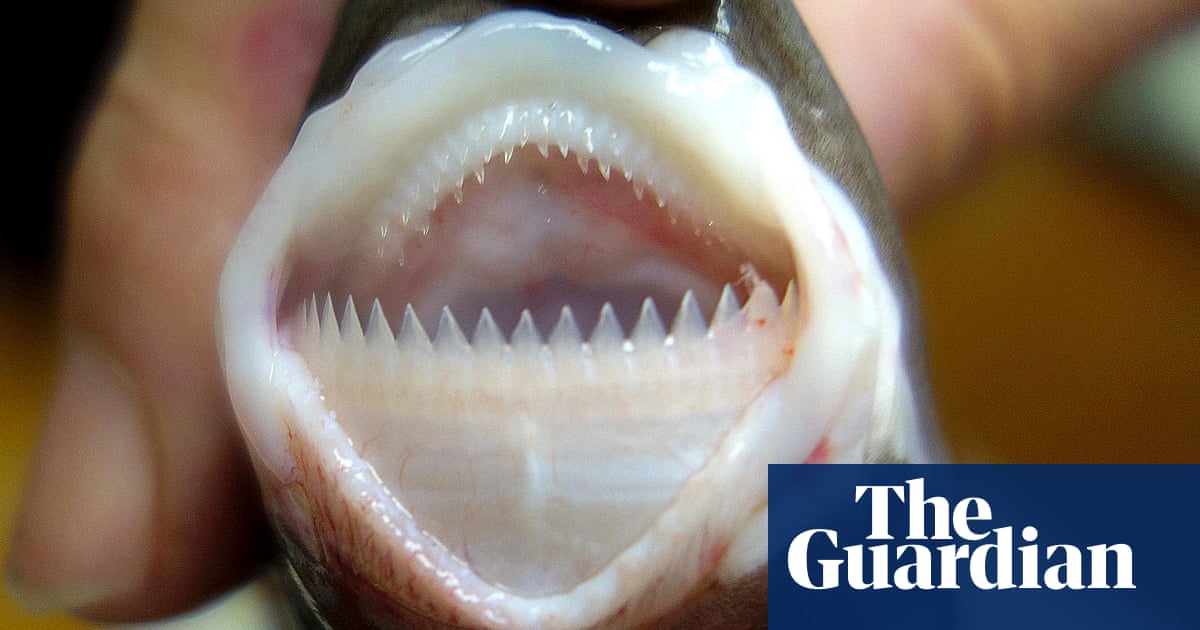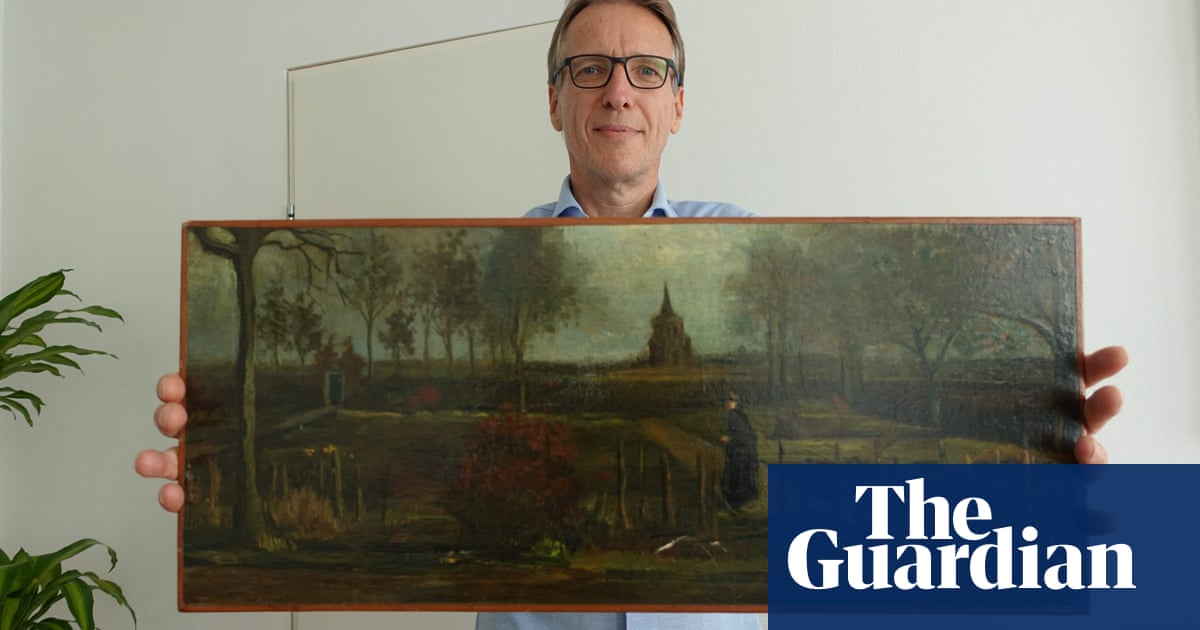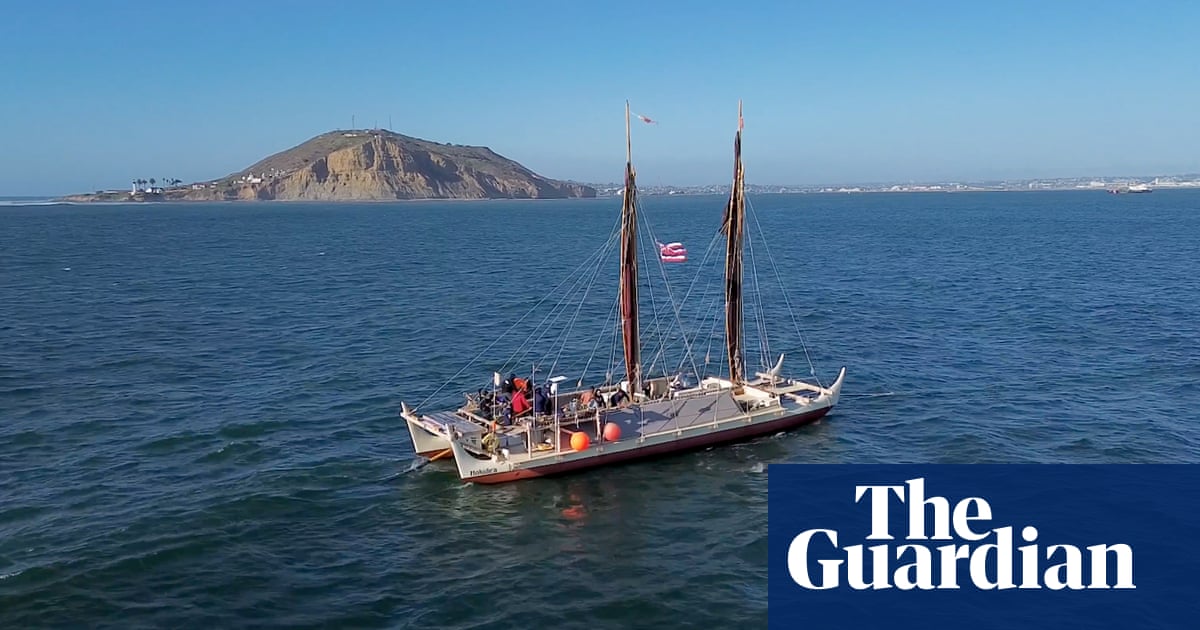
When a mining company arrived on Wagina nearly a decade ago with a proposal to mine 60% of the island for bauxite, resistance was swift and resolute.
“I was in the group that went and physically stopped the machines that landed on the site behind this island,” says Teuaia Sito, the former president of the Lauru Wagina Council of Women.
“We do not want mining, it’s simple,” says Sito, a mother of 10 and grandmother to 19. “What good would mining bring to us?”
The story of a giant company arriving on a tiny Pacific island to mine it for its valuable resources is not an unusual one; what is unusual in Wagina’s case is that the people of Wagina won.
Those on Wagina – a small island in Solomon Islands, home to roughly 2,000 people, 1,700km north-west of Cairns – fought hard to keep the mining company away because the memory of forced displacement is not a distant tale handed down through generations, but a living memory.
Wagina’s people have been displaced twice already. In the 1930s they were forced from their ancestral home in the Southern Gilbert Islands (now part of Kiribati), because of land shortages and overpopulation, to a new island chain, the Phoenix Islands.
In the early 1960s the British forcibly uprooted them again, ostensibly because of persistent droughts, but the community believe the relocation was related to British nuclear testing in neighbouring atolls.
That time the families were moved more than 3,000km across the Pacific, to Wagina where they began a new life among Melanesian neighbours who looked and spoke, ate and farmed, celebrated and mourned, differently to the ways they had known back home.
Moving was an upheaval some could not face a second time.
“One old man committed suicide before we left our home because he was not happy about leaving things behind like the coconut trees he planted,” says one villager, Tetoaiti Amon.
But the people of Wagina have made their new island their home, building kastom and community links and a new industry: they are now the largest farmers of seaweed – for toothpaste, food, cosmetics and fertiliser – in the Pacific.
Then, in 2013, Solomon Bauxite Limited – a mining company owned by two Hong Kong-listed companies – was granted a permit for an open-cast mine on Wagina. Publicly available plans show that the mine would have affected 48 sq km – 60% – of the island, and involved clearing 2,000 hectares of virgin forest.
An airport would have been built (the island is now accessible only by boat), along with new roads, significant excavation and the movement of roughly 150 truckloads of bauxite every day for 20 years.
The business case was strong. The island is rich in the key ore for making aluminium, which is used in construction, cars, aircraft and consumer electronics. And Solomon Islands is close – 10 days by sea – to China, the world’s largest bauxite importer. The mine was forecast to produce between 24bn and 40bn kg of ore over two decades, working 16 hours a day, six days a week.
But the islanders fought the case in a bruising, burdensome court struggle that ran for four years and, in 2018, were granted a stay on mining until the proposal was further scrutinised.
In March 2019 the islanders’ victory was strengthened when, in its first decision, Solomon Islands’ environmental advisory committee overturned the mining licence, finding that residents had not been properly consulted and the company’s environmental impact statement was “rather unscientific and improper” and not legally valid.
“A mine tenement covering 60% of a small island will have tremendous environmental impacts on water quality, air quality, the ecology and the marine environment,” the committee said in its decision.
“It will also have a dramatic and likely irreversible impact on the more than 2,000 residents of the island who rely on the sea and land for their livelihood … What will become of the people of Wagina if the mining occupies such a significant area of Wagina Island? Where will they obtain their material to construct their homes and resources to support their livelihoods?”
That decision was appealed but last November the environment minister upheld the decision.
But the fight is not finished yet.
The mining proposal has been widely, though not universally, opposed on Wagina, creating fissures within a small community built on consensus.
This year a group of eight villagers – calling themselves the Maungatabu, or “council of elders” – reportedly signed a memorandum of understanding with Solomon Bauxite for mining to proceed.
William Kadi, vice-president of the Solomon Islands Environmental Law Association, has steered the people of Wagina’s legal battle. He says while the MOU has no legal standing and is fiercely contested on the island, residents still live with the threat that miners might return to their home.
“The saddest part is not having the sense of owning the land where you live,” he says.
“It’s just unbelievable that these people have been here for decades and still they could not have new parcels of land in the Island granted for them to cater for a growing population and their needs, while a mining company can just easily sign off a lease for three-quarters of the island, it’s just absurd.”
The Guardian put questions about the proposed mine to Solomon Bauxite Limited but did not receive a response. In response to an Amnesty International investigation, a company director, Bruce Hills, wrote: “The Wagina bauxite project represents a significant financial and development opportunity for Solomon Islands.”
“The directors … believe that it is critical that Solomon Islands be in a position to attract mining companies that have the genuine skills and willingness to develop the mining industry in an environmentally and socially sustainable manner.
“We believe this project is too valuable for all stakeholders for it not to be developed.”
But a Wagina elder, Tebukewa Mereki, who led the appeal to the environmental advisory committee, has spent years patiently arguing before courts and tribunals that the right of the people of Wagina to live peacefully on their island outweighs any promised economic or development benefits.
“Wagina is our life,” he said in his legal challenge. “If they destroy Wagina, we have nowhere else to go.”












